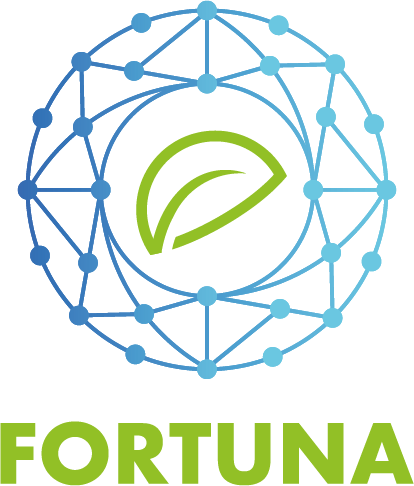WP1 and 5 – Dissemination and exploitation, including communication and stakeholder engagement
The primary goals of WP1 encompass establishing optimal conditions for stakeholder engagement, dissemination, exploitation, and communication (CED). This includes refining the draft CED plan, which incorporates the stakeholder engagement strategy, mapping stakeholders, and developing essential communication and dissemination tools.
Then WP5 complements WP1 activities by ensuring dissemination and optimal uptake of FORTUNA results through a series of specific C&D and stakeholder activities aiming at sharing information with all concerned actors. WP5 will also facilitate knowledge exchange, transfer, and cross-pollination of the research findings and outputs.
All in all, FORTUNA combines stakeholder engagement (input) with a dedicated communication and dissemination strategy (output) to fully exploit the results of the research.
WP2 – Mapping of Research and Solutions
The primary aim of WP2 is to gather research findings and practical solutions by engaging multi-actor teams. This effort seeks to showcase the current state of the art and pinpoint potential innovations for reducing pesticide use across arable, field vegetable, and perennial crops. Additionally, it involves exploring Agricultural Knowledge and Innovation Systems (AKIS) for viable solutions and making them accessible for further investigation by WP3 and WP4.
WP3 – Contribution of research to achieve F2F targets and pesticide-free agriculture
The overarching objective of WP3 is to delineate the role of research in bridging the identified gaps in current knowledge and technologies as well as identify the barriers for increased implementation of more diverse management strategies (more IPM) based on the mapping in WP2. This aims to bolster the Farm to Fork target of reducing overall chemical pesticide usage and particularly hazardous pesticides by 50% (Scenario 1), with a view to surpassing these goals under Scenario 2 (pesticide-free agriculture). The work will encompass research on strategies in the field and in the surrounding landscape related to pesticide reduction. Furthermore, FORTUNA will identify existing knowledge and gaps related to mitigating the effects of shifts in pest occurrence due to climate changes. The most relevant indicators and evaluation approaches for pesticide use and impact will be identified though e.g. a series of workshops and consultations that would be performed with the largest audience as possible.
WP4 – Future pesticide-free agriculture scenarios and research needs
The primary goal of WP4 is to pinpoint and prioritise socio-technical and socio-economic research gaps through multi-actor scenario workshops. Additionally, it aims to formulate research agenda roadmaps for each of the two scenarios, intended for submission to the European Commission.
